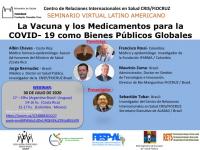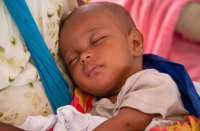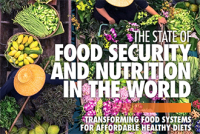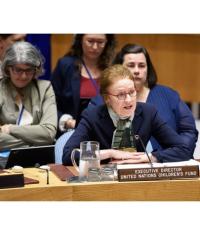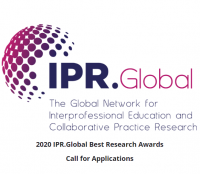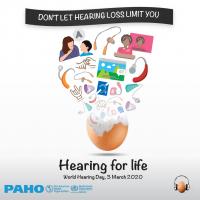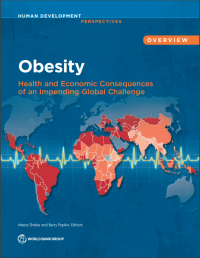You are here
News
-
08/10/2020 - The Center for International Relations in Health (Cris/Fiocruz), the National School of Public Health (Ensp/Fiocruz), the Network of Schools of Public Health in Latin America (Resp-AL), the Latin American Alliance for Global Health (Alasag), the Argentine Network of Schools of Public Health and the International Network of Health Technicians (Rets), who usually work in partnership, promoted the international seminar Vaccines and medicines for Covid-19 as global public goods. The event, held on July 30, can be watched in full (Portuguese/Spanish) on the VideoSaúde Distribuidora YouTube channel.
-
07/29/2020 - The global prevalence of potentially-deadly hepatitis B in children under age five, dropped to under one per cent in 2019 – down from five per cent in the pre-vaccine decades between the 1980s and early 2000s, the World Health Organization (WHO) reported on last Monday.
-
07/14/2020 - In much of the world, “hunger remains deeply entrenched and is rising”, the UN chief said on Monday, launching this year’s major UN food security update, highlighting that over the past five years, tens of millions of people have joined the ranks of the chronically undernourished. The latest edition of the State of Food Security and Nutrition in the World report, published on Monday (July 13), estimates that almost 690 million people went hungry in 2019 - an increase of 10 million compared to 2018 and almost 60 million in five years. High costs and low accessibility also mean that billions cannot eat in a healthy or nutritious way.
-
05/13/2020 - As the coronavirus outbreak enters its fifth month, the UN Children’s Fund (UNICEF) said that the health crisis is “quickly becoming a child rights crisis”, requesting $1.6 billion to support its humanitarian response for children impacted by the pandemic. And without urgent action, a further 6,000 under-fives could die each day.
-
04/07/2020 - In this International Year of the Nurse and the Midwife, World Health Day highlights the current status of nursing and midwifery around the world. WHO and its partners launched the 'State of the world’s nursing 2020 report' with recommendations to strengthen the nursing and midwifery workforce. The report intends to help countries to achieve national and global targets related to universal health coverage, maternal and child health, infectious and non-communicable diseases including mental health, emergency preparedness and response, patient safety and the delivery of integrated, people-centered care, amongst others.
-
03/10/2020 - InterprofessionalResearch.Global (IPR.Global) is pleased to announce the opening of the application for the 2020 IPR.Global Best Research Awards. IPR.Global is the Global Network for Interprofessional Education and Collaborative Practice (IPECP) Research. IPR.Global promotes and advocates for evidence-informed policies and practices through fostering and facilitating theory-driven, methodologically rigorous IPECP research. Applications open until Monday, April 30, 2020 by 11:59 PM PST.
-
03/03/2020 - World Hearing Day is the largest global awareness campaign on ear and hearing care. The campaign seeks to bring attention and action to hearing loss worldwide. PAHO takes the opportunity of this campaign to continue working with the Countries of the Americas on hearing loss prevention.
-
03/02/2020 - The International Narcotics Control Board (INCB) annual report cites studies which reveal that, in young people aged between 16 and 19, early use of alcohol, tobacco and cannabis leads to an increased likelihood of the use of opiates and cocaine in adulthood. The report also shows that substance abuse and associated health consequences are highest among young people, with cannabis being the most widely used substance. The highest rate of use, in young people aged 15-16, is in Europe (13.9 per cent), followed by the Americas (11.6 per cent), Oceania (11.4 per cent), Africa (6.6 per cent), and Asia (2.7 per cent).
-
02/20/2020 - No single country is adequately protecting children’s health, their environment and their futures, finds a landmark report released today by a Commission of over 40 child and adolescent health experts from around the world. The Commission was convened by the World Health Organization (WHO), UNICEF and The Lancet. The report, A Future for the World’s Children?, finds that the health and future of every child and adolescent worldwide is under immediate threat from ecological degradation, climate change and exploitative marketing practices that push heavily processed fast food, sugary drinks, alcohol and tobacco at children.
-
02/11/2020 - Long believed to be a problem exclusive to high-income countries, evidence shows that over 70 percent of the world's 2 billion overweight and obese individuals live in low- or middle-income countries. Faced with increasing disability, mortality, health care costs, and lower productivity, obesity is a growing concern for all countries regardless of income level, says a new World Bank report launched here today. Obesity has a major impact on national economies and on human capital by reducing productivity and life expectancy and increasing disability and health care costs.

